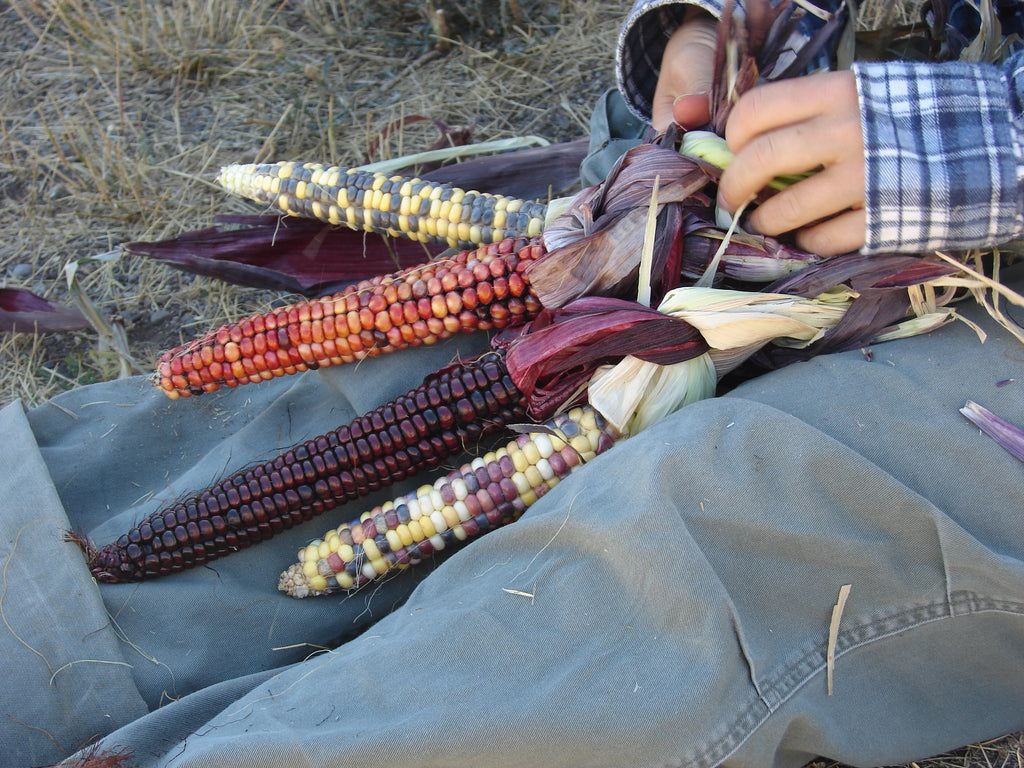Chief & the Community Garden March 17 2016
Having eluded the crop dusters and decontaminated the truck I made it on-time to meet Chief at the community garden site.
Sure ‘nough, nobody turned up but us and I got to do some sod busting with a bucking roto-tiller which brings us to a classic reflection on “points of no return.”
Due to her shall we say unusual upbringing Chief has developed some interesting traits in her character – something like a cross of Annie Oakley and Mattie Ross, the protagonist in True Grit.
Who else would pick a nom-de-plume like “Chief” while having the modest demeanor of a Latin scholar?
I knew that she would rise to the occasion.
It's Chief here, taking the turn in the story telling seat.
I have always been an entrepreneur and a hard worker, pursuing the dream of building a legacy for my family through my own ingenuity, but I have found myself driven to find that balance point between capitalizing on a business opportunity and improving the lives of everyone the business touches.
To that end, I persuaded New Ordnance to help me with a pilot project at a local community center. I was approached to help organize and lead a new community garden with a group of people who had never attempted to grow so much as a radish.
The proposal was to plow up a length of gnarly sod next to a storm-drain fed creek in the middle of town and give everyone at the community center a spot to try their hand at gardening. People would grow their own food, harvest it, and go home happy.
Cue the ominous music…
For those of you who have worked with fledgling community gardens, you’ve already spotted the red flags.
In spite of my initial impulse to steer clear of the project—worried about pollution from the storm-drain creek, lack of serious interest among the community, and the voraciously aggressive cheat-grass growing wild through the sod—I couldn’t help myself. I kept thinking of ways the project could help the community.
Almost a decade ago, I had been profoundly affected by my high school internship with a food bank, working on a project to create self-sustaining community programs to decrease “food insecurity.”
Although it sounds like nothing more than politically correct jargon, the reality hits closer to home. Have you or someone you love ever skipped a meal to pay bills? Or said “I’m not hungry” because there’s barely enough food in the house to feed the kids and no money to buy groceries? This is not limited to folks living on the margins of society—it reaches into middle class neighborhoods every day.
"Food insecurity is the most broadly-used measure of food deprivation in the United States. The USDA defines food insecurity as meaning “consistent access to adequate food is limited by a lack of money and other resources at times during the year.” 1 in 6 Americans experience food insecurity on a regular basis.
At this particular community center, I knew personally of families and seniors that avoided attending community events because they were embarrassed that they could not put a donation in the basket. I couldn’t stand by when I saw a way to help, and to change the community culture.

Back to New Ordnance:
ALEA IACTA EST
The die is cast...
Once the gnarled sod on that community garden was plowed up there was no turning back. Like many things in life, she knew that once the Rubicon is crossed you had better make sure all your due diligence is complete. You may not like the ensuing unintended consequences but you will complete the task and you will fulfill your end of the bargain.
Chief was looking to balance the eternal equation of civilization - the rights and responsibilities of the individual versus the community.
I had told her that the decision to get involved with the community garden was entirely her own but that I would back her up if the situation turned really sour.
Without going into the summer’s underbrush of gory detail, and since we are not writing novels here, we decided to fast-forward to the fall harvest and the after-action report.
I am sure she could still hear the echoes of that drill sergeant from her earlier years.
“What are your conclusions and lessons learned? They don’t have to be terribly nuanced. Just spit ‘em out”.
There’s not a minute to lose and I have to get back over the mountains before dark.
CHIEF'S CONCLUSIONS
- Find the joy in the work and get it done. Time and sprouting seeds wait for no one.
- The survival of any community garden depends on a core group of dedicated volunteers who care about the community more than their own personal gain. Avoid the tragedy of the commons.
- Actions matter. Often the people who proclaim and posture the most about the benefits and values of the community garden are the least reliable. Look for the quiet ones, the steady ones.
